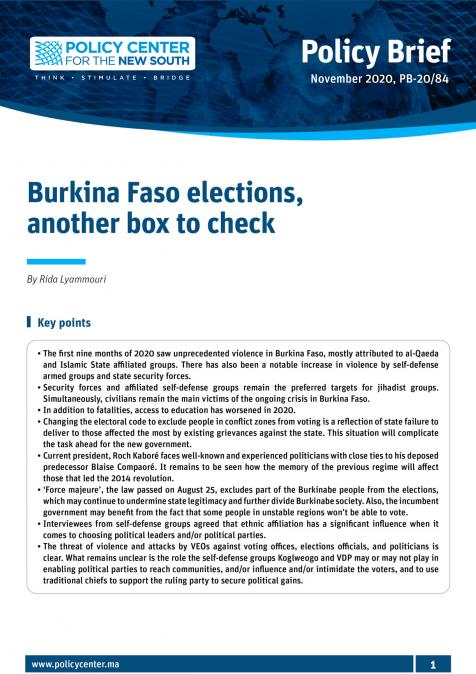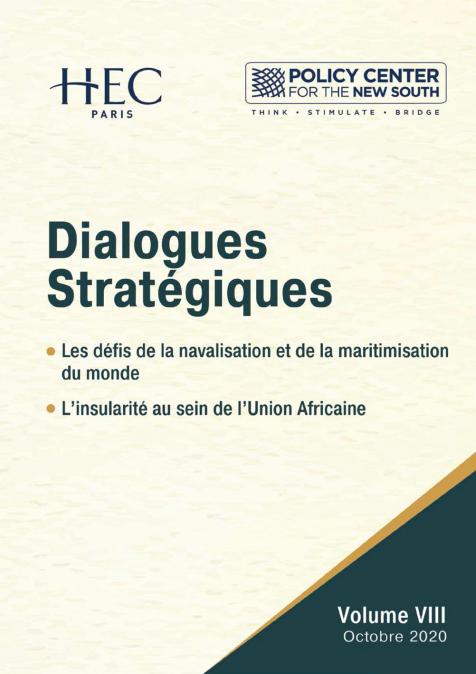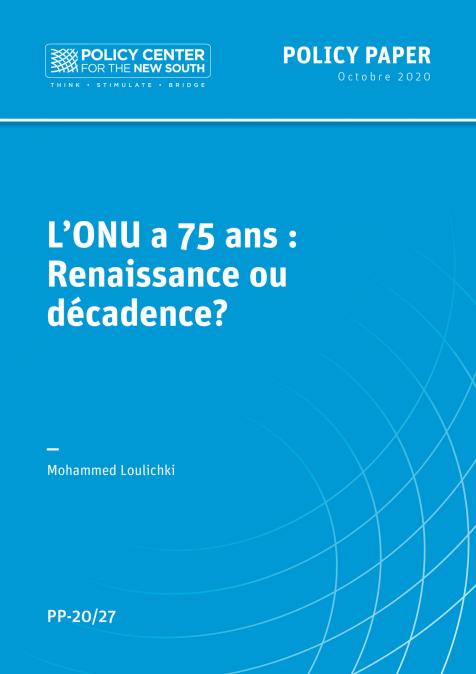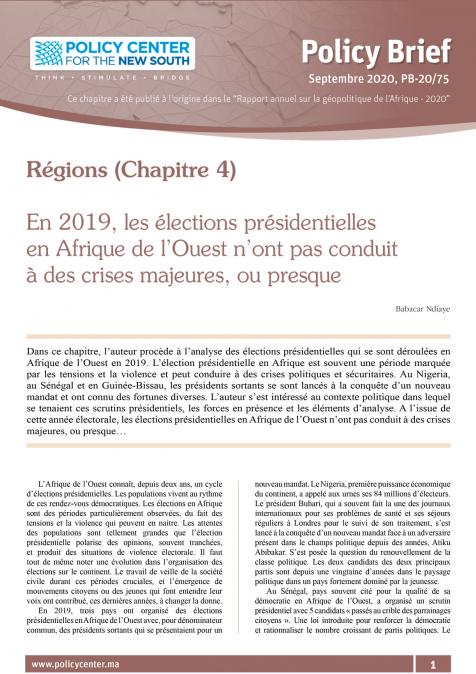The Middle East faces a web of complex crises driven by historical legacies, regional power struggles, and ongoing geopolitical tensions. Among these crises, the Israeli-Palestinian conflict stands out as a deeply entrenched issue, marked by competing national aspirations and territorial disputes. The region’s challenges are further compounded by a mix of deeply rooted conflicts, sectarian divides, and the influence of both regional and global actors. These crises have far-reaching implications, affecting global security, economic stability, and international diplomacy. Understanding the dynamics of these conflicts requires a comprehensive view of their historical contexts and current geopolitical shifts. In this interview, our columnist Helmut Sorge hosts Charles Kupchan, Senior Fellow at the Council on Foreign Relations (CFR). Kupchan shares insights into the underlying factors shaping the Middle East's past and ongoing crises, including the Israeli-Palestinian conflict. He explores the roles of major international players and discusses potential paths toward resolution, shedding light on the region’s complex landscape and its broader impact on global affairs.
RELATED CONTENT
-
AuthorsNovember 19, 2020Le mandat du président Trump qui, sauf miracle, s’achève en janvier 2021, avait soumis à rude épreuve les alliances des Etats-Unis d’Amérique avec plusieurs pays et entités européens et asiatiques. Plusieurs de ces alliés stratégiques des Etats-Unis avaient, alors, perdu confiance en l’esprit de solidarité qui a toujours empreint l’action étasunienne à leur égard, et amorcé des réflexions sur la construction de leurs propres systèmes de défense. L’arrivée à la Maison Blanche d’un no ...
-
AuthorsNovember 19, 2020In October 2014, Burkina Faso entered a new era when a social uprising resulted in the overthrow after 27 years of President Blaise Compaoré. The uprising was triggered by Compaoré’s attempt to amend the constitution so he could run for another term. In late 2015, Roch Marc Christian Kaboré was elected and sworn as a new president with high hopes for a new Burkina Faso. Corruption, democratic reforms, poverty, and economic development dominated President Kaboré’s inauguration speech ...
-
 AuthorsNovember 16, 2020Though Donald Trump lost the U.S. presidential election, it didn’t stop him claiming victory soon after the vote closed, and asserting that the counting should be stopped. It was abundantly clear that millions of ballots all around the nation were still being processed but nevertheless the president appeared in the East Room of the White House on Nov. 4, speaking at a podium in front of a Trump/Pence banner. “This is a fraud on the American public,” he said. “This is ...
AuthorsNovember 16, 2020Though Donald Trump lost the U.S. presidential election, it didn’t stop him claiming victory soon after the vote closed, and asserting that the counting should be stopped. It was abundantly clear that millions of ballots all around the nation were still being processed but nevertheless the president appeared in the East Room of the White House on Nov. 4, speaking at a podium in front of a Trump/Pence banner. “This is a fraud on the American public,” he said. “This is ... -
 AuthorsNovember 13, 2020A la veille des ultimes négociations sur les « relations futures », un accord entre le Royaume-Uni et l’Union européenne (UE) paraît probable. D’abord, Londres voit s’envoler l’appui américain : contrairement à Donald Trump, le président élu Joe Biden est défavorable au Brexit. Il a annoncé qu’un accord commercial USA-Royaume-Uni serait exclu si une « frontière dure » était rétablie entre les deux Irlandes. Or, c’est justement ce qu’impliquerait une sortie ...
AuthorsNovember 13, 2020A la veille des ultimes négociations sur les « relations futures », un accord entre le Royaume-Uni et l’Union européenne (UE) paraît probable. D’abord, Londres voit s’envoler l’appui américain : contrairement à Donald Trump, le président élu Joe Biden est défavorable au Brexit. Il a annoncé qu’un accord commercial USA-Royaume-Uni serait exclu si une « frontière dure » était rétablie entre les deux Irlandes. Or, c’est justement ce qu’impliquerait une sortie ... -
October 19, 2020To commemorate the 75th anniversary of the United Nations, the Policy Center for the New South is pleased to organize a series of webinars to discuss key themes related to the role of the UN on the international scene. Moderator: Mohammed Loulichki, Senior Fellow, Policy Center for the ...
-
AuthorsEugène BergPascal ChaigneauJérôme ÉvrardAlain Oudot de DainvilleSonia Le GouriellecRodolphe MonnetFlorent ParmentierNicolas VaujourOctober 16, 2020Dans ce huitième ouvrage, le Centre HEC de Géopolitique et le Policy Center for the New South présentent 13 papiers conjoints inspirés de la 8ème édition de la conférence annuelle des Dialogues Stratégiques, et enrichis par les auteurs. Lors de cette rencontre, qui a eu lieu le 17 octobre 2019, deux thèmes majeurs ont été discutés : Les défis de la navalisation et de la maritimisation du monde et l’insularité au sein de l’Union Africaine. Dans la première partie de l’ouvrage, les a ...
-
AuthorsOctober 1, 2020Le 24 octobre prochain, le monde célébrera le 75e anniversaire de la création de l’Organisation des Nations unies (ONU). Cette célébration intervient dans un contexte dominé par l’impact socio-économique de la pandémie Covid-19 et marqué par un recul inquiétant du multilatéralisme et par une fragilisation rampante de ses Institutions les plus représentatives. Après la malheureuse expérience de la Société des Nations, créée en 1919, la mise en place des Nations unies a fait naître l ...
-
 AuthorsSeptember 28, 2020Bank robbers are now and then caught because banks, insurance companies, or robbed personalities promise rewards for the arrest of criminals. In the past, Hollywood took the lead in dreaming up such scenarios. But in early August, the U.S. State Department offered a $10 million reward for information leading “to the identification or location of any person, who works with or for a foreign government for the purpose of interfering with U.S. elections through certain illegal cybe ...
AuthorsSeptember 28, 2020Bank robbers are now and then caught because banks, insurance companies, or robbed personalities promise rewards for the arrest of criminals. In the past, Hollywood took the lead in dreaming up such scenarios. But in early August, the U.S. State Department offered a $10 million reward for information leading “to the identification or location of any person, who works with or for a foreign government for the purpose of interfering with U.S. elections through certain illegal cybe ... -
AuthorsBabacar NdiayeSeptember 9, 2020Dans ce chapitre, l’auteur procède à l’analyse des élections présidentielles qui se sont déroulées en Afrique de l’Ouest en 2019. L’élection présidentielle en Afrique est souvent une période marquée par les tensions et la violence et peut conduire à des crises politiques et sécuritaires. Au Nigeria, au Sénégal et en Guinée-Bissau, les présidents sortants se sont lancés à la conquête d’un nouveau mandat et ont connu des fortunes diverses. L’auteur s’est intéressé au contexte politiqu ...
-
AuthorsPedro da Motta VeigaSandra Polónia RiosAugust 24, 2020A previous CINDES’ policy brief, issued in May 2019, addressed the first months of Brazilian President Jair Bolsonaro’s foreign policy. According to its conclusions, there were “strong indications that a rupture in Brazil’s foreign policy is deliberately being promoted”, at the economic as well as the political level. Taking stock of the evolution of Bolsonaro’s foreign policy in the eighteen months of his tenure as President, this second brief discusses to what extent the intended ...








